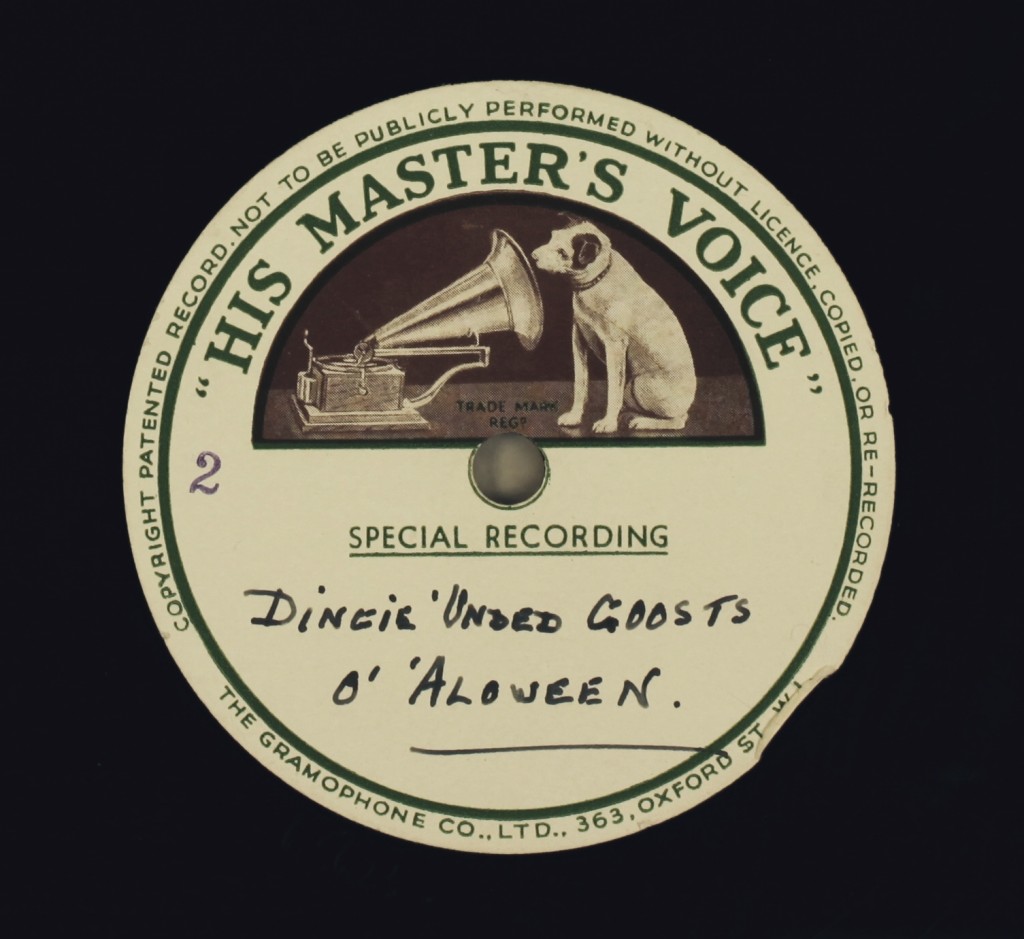Our Sound Archivist Martin Astell brings us another highlight from the Essex Sound and Video Archive…
SA 24/221/1
Whether you believe in ghosts or not, it is possible that some may knock on your door at the end of October. For that reason, I have chosen this ghostly tale – supposedly recounted in Essex dialect – as our recording for this month.
We know that the poem was written (and presumably spoken) by Mr J. London of Collier Row at some point in the first half of the twentieth century. Unfortunately, we know very little else about this delightful curiosity.
It tells of supernatural goings-on in Essex’s Dengie peninsula, which is still referred to by the historic term of the Dengie Hundred, and why on ‘’Alloween Eve’ you may still hear ghostly cries as you travel through its misty lanes. According to ‘The Witches of Dengie’ by Eric Maple (published in Folklore, Volume 73, Autumn 1962), “the Hundred of Dengie was until comparatively modern times regarded as ‘Witch Country’, to use a local term for any district where the traditions of witchcraft were very strong.” This article goes on to describe reputed encounters with witches said to have the power of flight – “like other witches of the Essex marshlands” – and a number of tales involving horses and carts affected by witchcraft. One wonders whether Mr London had heard some of these tales before he sat down to compose his tale.
The poem begins: “Should ye ever goo in a pub called Kickin’ Dickey, down Dingie ‘underd way” which is curious as we find no record of a pub with this name in the area. There is a pub called Kicking Dickey in Great Dunmow in Essex, but this is decidedly not in the Dengie Hundred. However, ‘dickey’ is a dialect term for donkey, so could it be that locals used Kickin’ Dickey as a nickname for the White Horse in Southminster, or Mundon, or even the village of Dengie?
If you know, let us know.

